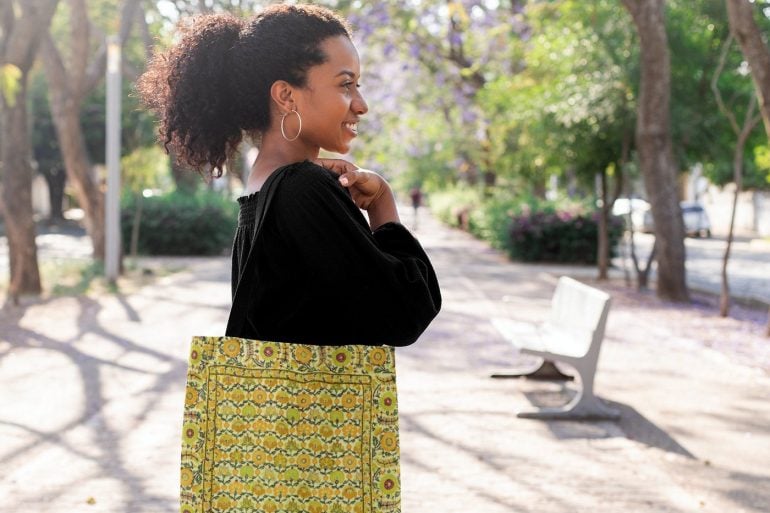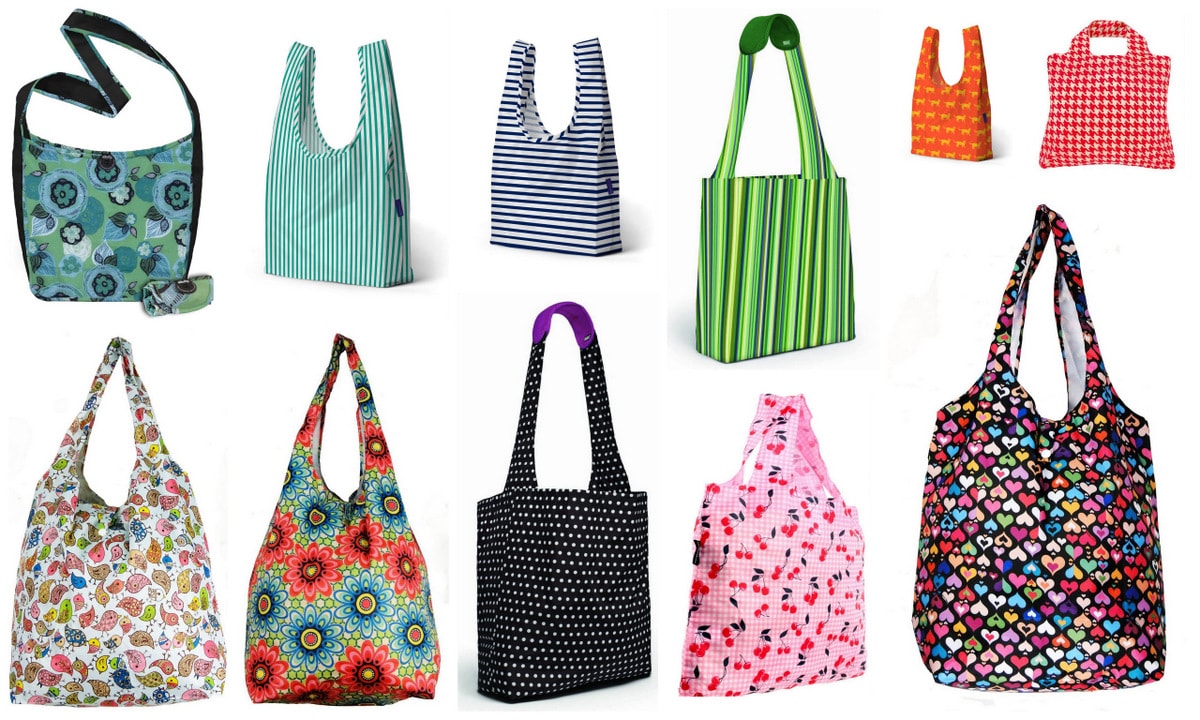Do you remember going to the supermarket when we were kids? First, it was all paper bags, all the time… then those brown bags got a run for their money when cashiers started to ask, “Paper or plastic?”
Little did we know then those newfangled disposable plastic bags would soon completely dominate the field… and eventually, plastic would end up pretty much everywhere on the planet. (And not in a good way.)
They’re not just environmentally friendly — in many areas where single-use plastic bags are banned, they’re one of the few practical solutions available. Still, paper is still not necessarily the best option.
But if you buy the right kind of reusable shopping bags — and treat them well — you’re helping minimize plastic waste, both in your own trash bins and around the world as a whole. In fact, a high-quality reusable shopping bag has the potential to replace over 600 single-use plastic bags over its lifetime, significantly reducing litter while also conserving natural resources.
10 BYO reusable grocery bags tips & ideas
1. Put “Bring shopping bag” on the top of every grocery list.
2. Keep your bags in reach so you’re more likely to see them and bring them into the store.
3. Store reusable bags in the car and at work. Many shopping trips are unplanned and unexpected, so you can be prepared by keeping your bags handy and accessible.
4. Get reusable bags that have a clip or clip loop, and attach your reusable bags to key chains, belt loops, purse straps, dog leashes, and stroller handles — anything to make sure they’re there when you need them.
5. Hang your bags on your doorknob, and you’ll be sure to remember your reusable bag on the way out of the house.
6. In the checkout line and forgot your bags? If you have just a few items, “go bagless.” If you have more, just load all of your groceries back into the cart, and bag them once you get to your car. If you completely forgot your bags, you can always load your un-bagged groceries into the car, then grab your bags once you get home.
7. After cleaning them out, always be sure to put the bags back in your car.
8. Don’t limit your reusable bags to just grocery trips — bring them to the drugstore, the mall, garage sales, and anywhere else you shop.
9. Stuck for a gift idea? Give your friends and family reusable bags for presents.
10. Always keep your bags clean. Get some tips on how to do that below!
Reusable shopping bags reduce waste — but how safe are they for your health?
The trend of swapping disposable grocery bags for cloth and plastic-lined reusable bags has become an increasingly popular “green” alternative.
The problem with such bags is that the fabric or materials in reusable grocery bags can get contaminated with germs like Salmonella or E coli from food or other items. These bacteria could then contaminate other things that you carry, making you and your family sick.
If you use reusable grocery bags, here are some simple steps that you can follow to reduce cross-contamination and keep everyone healthy.
Wash often
Read the care labels on your bags to determine whether they should be machine washed, hand-washed, or wiped clean with a non-toxic cleaning agent.
Many reusable cloth bags can be washed in a washing machine using laundry detergent, and dried in the dryer or air-dried.
Plastic-lined reusable bags should be gently scrubbed using hot water and soap and hung to dry; let them dry completely, both inside and out.
Bags may also be cleaned with a disinfecting wipe or spray after each use.
Check that both cloth and plastic-lined reusable bags are completely dry before storing them.
If reusable grocery bags have been used to carry non-food items (such as detergents, household cleaners or other chemicals), wash and dry the bags before using them to transport food.
At the store
Place reusable shopping bags on the bottom shelf of the grocery cart (below the cart basket where food products are placed).
Use separate bags: For example, dedicate one bag to meat, fish or poultry; one for dairy products; one for fresh fruits and vegetables, and another for ready-to-eat foods. At a minimum, meat, poultry, and fish should be placed in separate reusable bags from fresh produce and ready-to-eat foods. This will help reduce cross-contamination.
Non-food items should be placed in separate reusable bags from food products.
Always put raw meats into thin disposable plastic bags before putting them in a reusable bag. A disposable plastic bag helps contain any juices that drip off of raw meat packages, which can touch other foods and contaminate them. Disposable plastic bags are usually available in the raw meat or produce areas of your store.
Throw away disposable plastic bags used for raw meat immediately after use. Never reuse bags that contained raw meat or poultry.
Remember that cold food needs to be refrigerated within two hours of leaving the store or market. Cold food should be refrigerated within one hour when temperatures outside are above 90 degrees.
At checkout, do not place your reusable grocery bags on the conveyor belt. Hand the bags to the checker/bagger or, if self-bagging, carry the bags to the bagging area at the end of the checkout counter.
More tips for your shopping bags
Storing reusable grocery bags in the trunk of your car is not recommended. During the warmer months, the increased temperatures can promote the growth of bacteria that may be present on the bags.
Store reusable bags in a cool, dry place, such as in your home or in the garage, and keep the grocery bags away from sources of contamination, such as pets, children and chemicals.
Bags used for groceries should be used only for food. Don’t carry items such as baby bottles, toys, gym clothes, and other items in the same reusable bags that you take to the grocery store.
Considering routinely using bags of one color for food items, and bags of a different color for non-food items.
These simple steps will help you to reduce cross-contamination, and help keep you and your family safe from harmful bacteria.









